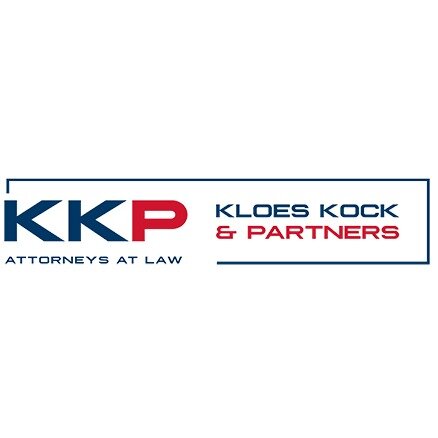Best Tax Increment Financing Lawyers in Aruba
Share your needs with us, get contacted by law firms.
Free. Takes 2 min.
Or refine your search by selecting a city:
List of the best lawyers in Aruba
About Tax Increment Financing Law in Aruba
Tax Increment Financing (TIF) is a public financing method used as a subsidy for redevelopment, infrastructure, and other community-improvement projects in Aruba. It relies on future gains in taxes to subsidize current improvements, which are expected to lead to those future gains. In Aruba, this tool is particularly relevant to stimulate economic development and attract investment to areas that may otherwise struggle to attract funding. The primary aim is to enhance the infrastructure and economic conditions, thus fostering a more prosperous environment for businesses and residents alike.
Why You May Need a Lawyer
There are several scenarios where seeking legal advice on Tax Increment Financing in Aruba could be beneficial:
- Project Development: If you are a developer considering a project that could benefit from TIF, understanding the legal framework is essential to maximize potential benefits.
- Negotiations: Navigating negotiations with governmental bodies can be complex, and legal assistance can help ensure that agreements align with your interests.
- Compliance: Ensuring compliance with Aruba's specific legal requirements for TIF can prevent future disputes or legal issues.
- Dispute Resolution: If disputes arise regarding the interpretation of TIF agreements or related issues, a lawyer can provide valuable guidance.
- Investment Advice: Understanding the tax implications and financial benefits of participating in a TIF project may require expert legal and financial advice.
Local Laws Overview
In Aruba, Tax Increment Financing is governed by specific local laws that address the conditions and regulations for utilizing this financial tool. Key aspects include:
- TIF District Designation: Areas must be designated as TIF districts based on certain criteria, such as economic need and potential for growth.
- Incremental Taxes: The increase in property tax revenues within the TIF district is used to finance public infrastructure projects.
- Project Approval: Projects must undergo rigorous approval processes, ensuring they meet developmental and environmental standards.
- Stakeholder Engagement: There is a focus on inclusive decision-making, requiring input from community stakeholders and businesses.
- Reporting and Accountability: Regular reporting and accountability measures are mandatory to ensure the projects meet intended goals.
Frequently Asked Questions
1. What is the primary purpose of TIF?
The primary purpose of Tax Increment Financing is to encourage economic development in underdeveloped or economically stagnant areas by using future tax gains to fund immediate improvements.
2. How is a TIF district established?
A TIF district is established by local governmental authorities based on specific criteria, such as the need for economic revitalization and potential for development.
3. Who can propose a TIF project?
Both public entities and private developers can propose TIF projects, but they must undergo a governmental approval process.
4. What are some typical TIF projects?
Typical TIF projects may include infrastructure improvements, commercial redevelopment, affordable housing projects, and public amenities.
5. How are TIF funds generated?
TIF funds are generated by capturing the future increase in tax revenues from the improved property values within the TIF district.
6. Are there risks associated with TIF?
Yes, risks can include overestimating future tax revenue, potential for mismanagement, or failing to achieve the intended economic impact.
7. How does TIF benefit the community?
TIF can lead to significant community benefits, including job creation, improved infrastructure, and increased economic activity.
8. Are there costs to taxpayers?
Generally, TIF is structured to avoid direct costs to existing taxpayers, as it relies on future tax revenue generated by the project itself.
9. How long do TIF arrangements typically last?
TIF arrangements typically last between 15 to 30 years, depending on the specific goals and agreements set for the TIF district.
10. Can TIF be used in combination with other financing tools?
Yes, TIF can often be combined with other financing mechanisms, such as bonds or grants, to maximize project funding.
Additional Resources
For those seeking further information on Tax Increment Financing in Aruba, the following resources may be helpful:
- Aruba Department of Economic Affairs: Provides guidance on economic development programs, including TIF.
- Aruba Chamber of Commerce: Offers resources and support for businesses considering new investments.
- Local Legal Firms: Many legal firms in Aruba specialize in finance and public projects, providing expertise on TIF.
- Community Development Publications: Publications and reports can provide insights into successful TIF projects and best practices.
Next Steps
If you believe you need legal assistance with Tax Increment Financing in Aruba, consider the following steps:
- Research: Begin by gathering information on TIF laws and regulations in Aruba.
- Consult Professionals: Contact a legal professional specializing in finance and development law to discuss your specific needs and goals.
- Prepare Documentation: Ensure you have all necessary documents ready, such as project proposals and financial statements.
- Schedule a Meeting: Arrange a meeting with legal counsel to explore your options and receive tailored advice.
- Engage with Stakeholders: Collaborate with community stakeholders to gain support and insight into potential projects.
Lawzana helps you find the best lawyers and law firms in Aruba through a curated and pre-screened list of qualified legal professionals. Our platform offers rankings and detailed profiles of attorneys and law firms, allowing you to compare based on practice areas, including Tax Increment Financing, experience, and client feedback.
Each profile includes a description of the firm's areas of practice, client reviews, team members and partners, year of establishment, spoken languages, office locations, contact information, social media presence, and any published articles or resources. Most firms on our platform speak English and are experienced in both local and international legal matters.
Get a quote from top-rated law firms in Aruba — quickly, securely, and without unnecessary hassle.
Disclaimer:
The information provided on this page is for general informational purposes only and does not constitute legal advice. While we strive to ensure the accuracy and relevance of the content, legal information may change over time, and interpretations of the law can vary. You should always consult with a qualified legal professional for advice specific to your situation.
We disclaim all liability for actions taken or not taken based on the content of this page. If you believe any information is incorrect or outdated, please contact us, and we will review and update it where appropriate.
Browse tax increment financing law firms by city in Aruba
Refine your search by selecting a city.











